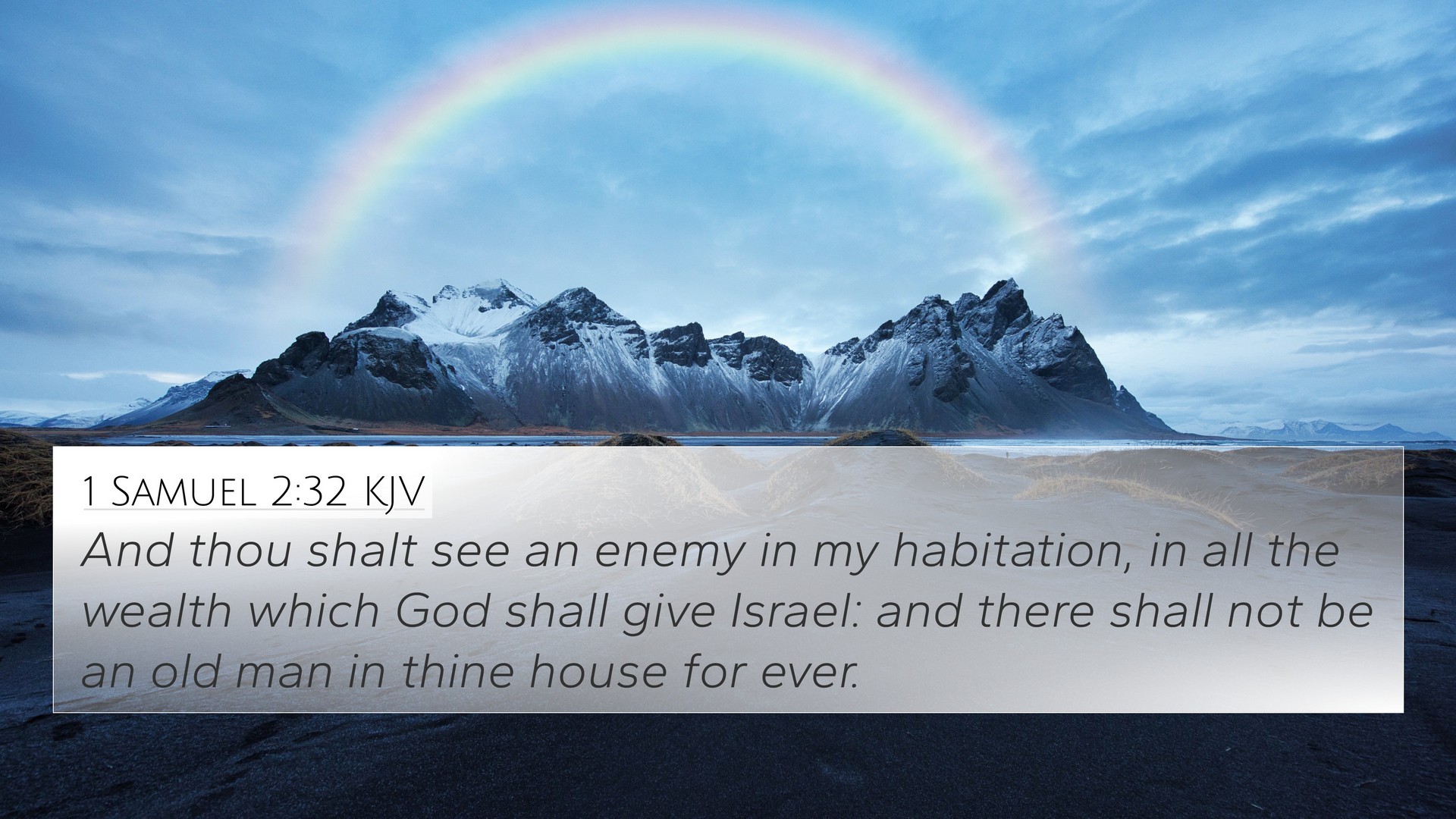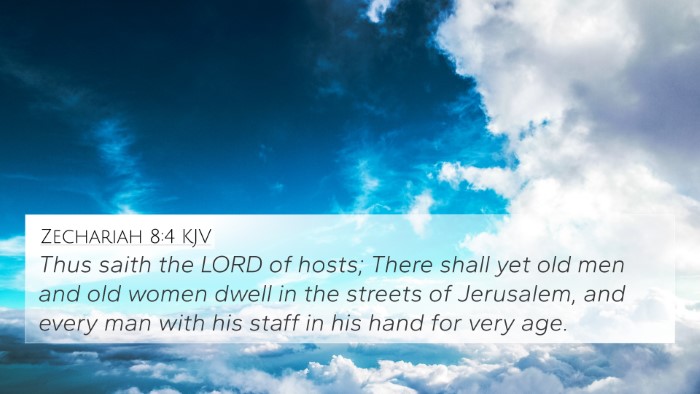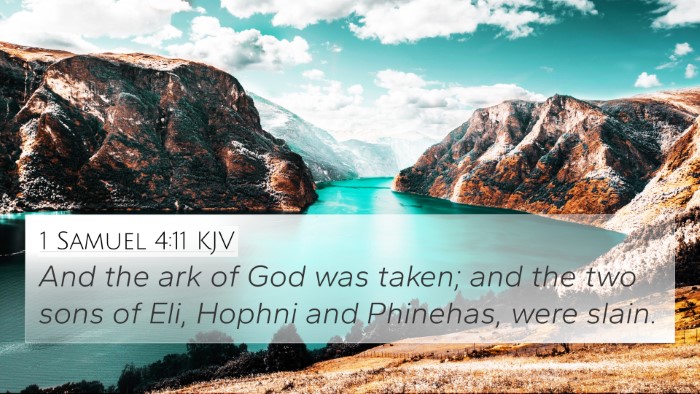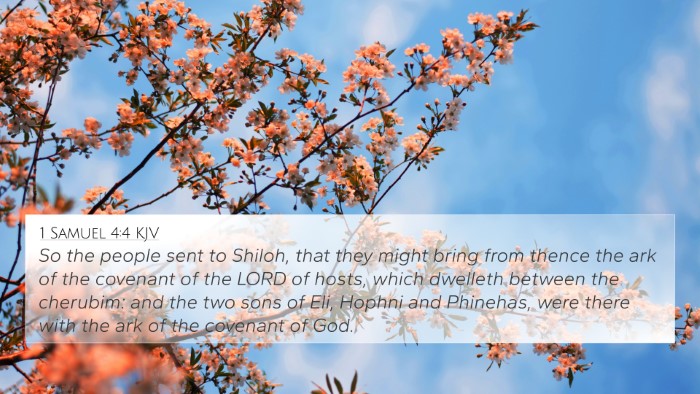Understanding 1 Samuel 2:32
Bible Verse: 1 Samuel 2:32 - "And thou shalt see an enemy in my habitation, in all the wealth which God shall give Israel: and there shall not be an old man in thine house for ever."
Verse Overview
This verse speaks to a prophetic declaration concerning the priesthood of Eli and the future judgment that will befall his house. It serves as a poignant reminder of the consequences of disobedience to God's covenant.
Commentary Insights
Matthew Henry's Commentary
Henry outlines the serious implications of Eli's failures as a priest. He emphasizes that God will raise up another priest who will be faithful, indicating a shift in divine favor. Henry notes that the absence of elder members in Eli’s lineage symbolizes complete ostracization from God’s graces.
Albert Barnes' Notes
Barnes highlights the stern nature of God's judgment against Eli and his family. He explains that "an enemy in my habitation" signifies that Eli's house will face adversaries from within God's chosen people, pointing to internal strife and conflict. The wealth mentioned refers to the blessings God gives, which Eli’s family will no longer enjoy.
Adam Clarke's Commentary
Clarke elaborates on the theological ramifications of Eli’s sin and its impact on future generations. He notes the grim future of Eli's descendants — an absence of old age as a sign of disgrace and divine punishment. Clarke underscores the connection between accountability and the priestly role, which underscores the themes of judgment and mercy inherent in this verse.
Thematic Connections
This verse binds deeply with themes of priestly duties, divine judgment, and the consequences of failing to uphold the covenant with God.
Related Bible Cross-References
- 1 Samuel 2:30: Highlights the Lord's promise to honor those who honor Him, establishing a clear contrast with Eli's family.
- 1 Samuel 3:14: For the sins of Eli's house, a judgment reminiscent of this verse's forewarning.
- Hebrews 7:11-12: Discusses the change in priesthood and its significance in light of Christ's new covenant.
- Malachi 2:1-2: Addresses the importance of the covenant with Levi and its implications for priestly conduct.
- Psalm 37:28: Emphasizes God’s protection of the righteous and the fate of the wicked, reflective of Eli’s predicament.
- 1 Peter 2:9: Asserts believers as a royal priesthood, contrasting Eli’s failing legacy.
- Jeremiah 7:12-14: Illustrates God’s rejection of those who do not keep covenant fidelity, resonating with Eli’s family judgment.
- Acts 13:22: Chronicles God’s choice of David, who represented a faithful line contrasted with Eli's unworthiness.
- Romans 11:22: On God’s kindness and severity, as it pertains to His chosen people.
- Revelation 3:16: The seriousness of being lukewarm in faith, reflective of Eli’s mediocre faithfulness.
Application and Reflection
This verse invites believers to reflect on the importance of fidelity to God's commands and the significant weight of leadership roles in the community of faith. The dire warnings given to Eli's house serve as a call to integrity and responsibility for all who hold positions of spiritual authority.
Conclusion
1 Samuel 2:32 is a powerful reminder of God’s holiness and the consequences of disobedience within His covenant community. By studying the rich theological dimensions and connections within Scripture, believers can gain deeper insights into their own faith journeys.
Further Study Recommendations
For those wishing to dive deeper into cross-referencing Biblical texts, consider using tools such as:
- Bible concordances to identify keywords and themes.
- Cross-reference guides for a systemic approach to study.
- Bible reference resources to uncover or understand scriptural relationships.
- Online and print Bible chain references for thematic exploration.
FAQs About Cross-Referencing Bible Verses
- How do I find cross-references in the Bible? Utilize a Bible concordance or a cross-reference Bible study tool.
- What verses are related to 1 Samuel 2:32? As outlined above, several verses in both the Old and New Testaments align with the themes presented in this verse.
- How do two specific Bible verses connect? By examining thematic elements, context, and the overarching narrative of scripture, connections can often be elucidated.
- What are the implications of comparing verses? Comparative analysis not only enhances understanding but also reveals greater truths inherent in the God’s Word.








